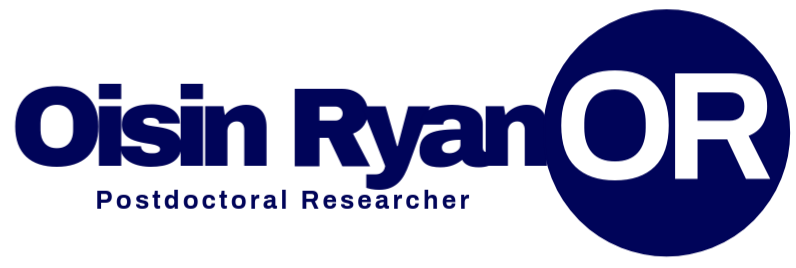Introduction
As technology continues to evolve at an astonishing rate, the way we handle, store, and secure data has never been more critical. Amid growing concerns about privacy, security, and transparency, Rdatao emerges as an innovative solution designed to streamline data management, improve operational efficiency, and safeguard sensitive information. This article explores the concept of Rdatao, its benefits, real-world applications, and how it is changing the data management landscape.
What is Rdatao?
Rdatao is a revolutionary data management system that integrates state-of-the-art technologies such as blockchain, cloud computing, and artificial intelligence (AI) to provide organizations with a comprehensive solution for managing data securely and efficiently.
-
Blockchain enhances transparency by creating an immutable ledger of all data transactions.
-
Cloud Computing allows for scalable storage and access, ensuring that businesses can expand their data management solutions as needed.
-
AI automates and optimizes data processes, improving efficiency and reducing human error.
Key Features of Rdatao
It’s unique approach to data management is defined by several core features, which work together to ensure businesses can handle their data with confidence:
-
Data Integrity: Ensures that data remains accurate and consistent across all systems and processes.
-
Security: Utilizes robust encryption and security protocols to protect sensitive information.
-
Transparency: Blockchain technology offers full visibility into the data management process, ensuring accountability.
-
Scalability: The system is built to grow with your organization, providing adaptable solutions as your needs evolve.
These features make it an ideal choice for businesses looking to improve data management without sacrificing security or performance.
How Rdatao Enhances Data Management
It offers a wide range of benefits that significantly enhance how organizations manage data:
1. Improved Data Security
Data breaches are a growing concern, particularly in industries such as healthcare and finance. With Rdatao, businesses can safeguard sensitive data through cutting-edge encryption techniques and decentralized systems like blockchain. This makes it much harder for unauthorized users to access, alter, or steal valuable data.
2. Operational Efficiency
It automates many of the tasks traditionally performed manually, such as data entry, processing, and storage. By leveraging AI and machine learning, Rdatao reduces human error, speeds up data processing, and allows businesses to focus on more strategic tasks.
3. Regulatory Compliance
It helps organizations comply with stringent regulations such as GDPR and HIPAA by offering features that ensure data is stored securely and that users have full control over their personal information. It also provides audit trails, enabling businesses to demonstrate compliance during regulatory audits.
4. Data Analytics and Insights
Through AI-driven analytics, Rdatao can provide actionable insights into business operations, helping decision-makers identify inefficiencies and areas for improvement. These insights can also help in forecasting trends, customer behavior, and more.
5. Cost Reduction
While the initial setup may require investment, the long-term savings from reduced errors, improved efficiency, and faster decision-making make Rdatao a cost-effective solution. Furthermore, the integration of cloud computing helps businesses reduce the need for expensive physical infrastructure.
Rdatao’s Applications Across Industries
It’s versatility makes it suitable for a wide range of industries. Here’s a look at how Rdatao is being used across different sectors:
These examples highlight the broad applicability of Rdatao and its potential to revolutionize how industries handle data.
Real-World Examples of Successful Rdatao Implementations
Let’s look at a few real-world examples where it has been successfully implemented:
1. Healthcare Sector
Sarah, a healthcare administrator, used Rdatao to enhance her hospital’s data management system. By integrating Rdatao, she was able to secure patient records while ensuring that medical staff could access data quickly and efficiently. The result? A reduction in errors and improved patient care.
2. Financial Services
Alex, a financial advisor, implemented Rdatao for transaction tracking and fraud prevention. Using blockchain, he could offer clients secure and transparent investment options, all while complying with financial regulations. This not only increased client trust but also improved operational efficiency.
3. Education
Maria, a university registrar, leveraged Rdatao to manage student records securely. With Rdatao’s AI-powered analytics, Maria was able to identify patterns in student performance, allowing for more personalized academic support and improved graduation rates.
Overcoming Challenges with Rdatao
While Rdatao offers numerous benefits, there are challenges organizations must overcome when adopting this new system:
1. Complex Setup
It’s advanced technologies require skilled personnel to set up and maintain. Organizations may need to invest in training or hire experts to ensure a smooth transition.
2. Initial Investment
The upfront costs of adopting Rdatao can be significant, especially for smaller organizations. However, these costs are typically offset by the long-term benefits in terms of efficiency and security.
3. Resistance to Change
Employees who are accustomed to legacy systems may be resistant to adopting new technologies. Overcoming this resistance requires effective change management strategies and clear communication about the benefits of Rdatao.
Rdatao Tools and Techniques for Implementation
To successfully implement Rdatao, businesses need the right tools and techniques. Here are some common strategies:
1. Time Tracking and Data Auditing
It integrates time tracking and audit trails to help businesses monitor how data is being used and identify potential inefficiencies.
2. Cloud Integration
Cloud computing is at the heart of Rdatao, allowing businesses to store and process vast amounts of data without relying on expensive on-premise infrastructure.
3. Task Automation
Rdatao’s AI-powered systems automate repetitive tasks, reducing the need for manual intervention and improving productivity
Conclusion
In conclusion, it represents the future of data management. With its integration of blockchain, AI, and cloud computing, Rdatao offers businesses the ability to manage data more efficiently, securely, and transparently. Its widespread applications across industries such as healthcare, finance, and education demonstrate its versatility and value. Although the adoption of Rdatao may come with some initial challenges, the long-term benefits of improved data integrity, security, and operational efficiency make it a worthwhile investment for organizations looking to stay ahead in a data-driven world.
By embracing Rdatao, businesses can not only ensure better data management practices but also foster greater trust with their customers and clients, ultimately driving success and growth.
FAQs About Rdatao
What makes Rdatao different from traditional data systems?
It integrates blockchain, AI, and cloud technology for enhanced security, transparency, and efficiency, offering decentralized data management that traditional systems lack.
How does Rdatao ensure data security?
Rdatao uses blockchain for data integrity, along with strong encryption protocols and regular security audits to ensure compliance with data protection regulations like GDPR.
Which industries benefit the most from Rdatao?
It benefits healthcare, finance, and education sectors by improving data security, transaction transparency, and streamlining data management for better insights.
Is Rdatao suitable for small businesses?
Yes, it is scalable and suitable for both small businesses and large enterprises, offering cloud-based solutions to meet various data management needs.
What challenges exist in implementing Rdatao?
Challenges include complex setup, high initial costs, and potential resistance from employees to adopt new technologies, though these can be managed with proper support.
Can Rdatao help with regulatory compliance?
Yes, Rdatao’s features like encrypted storage and audit trails assist businesses in meeting regulatory requirements such as GDPR, HIPAA, and others.






